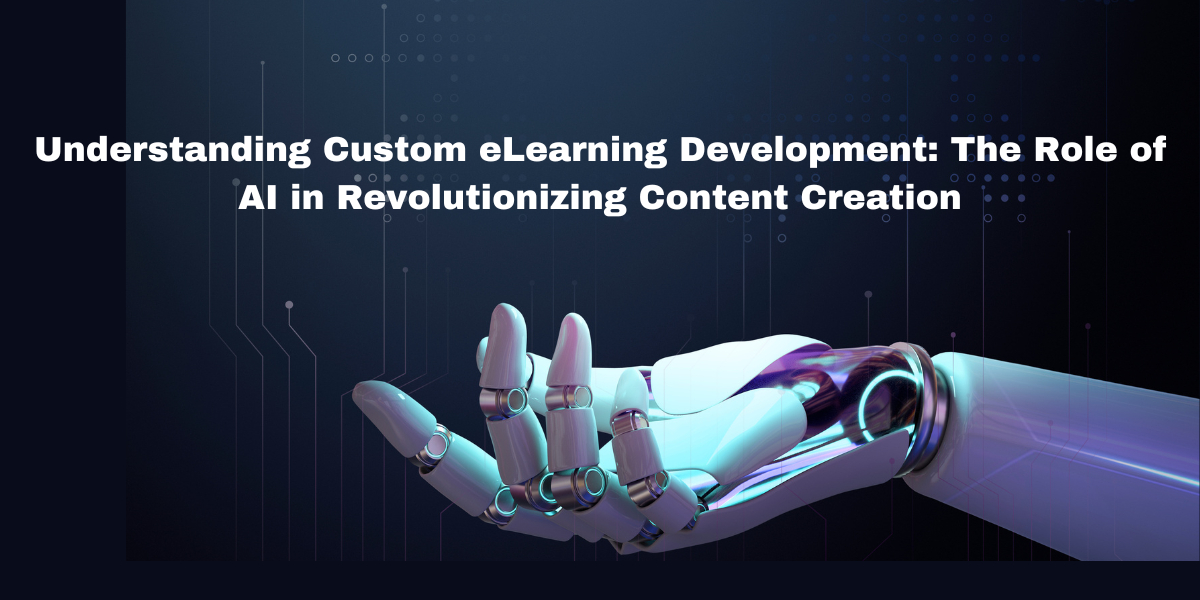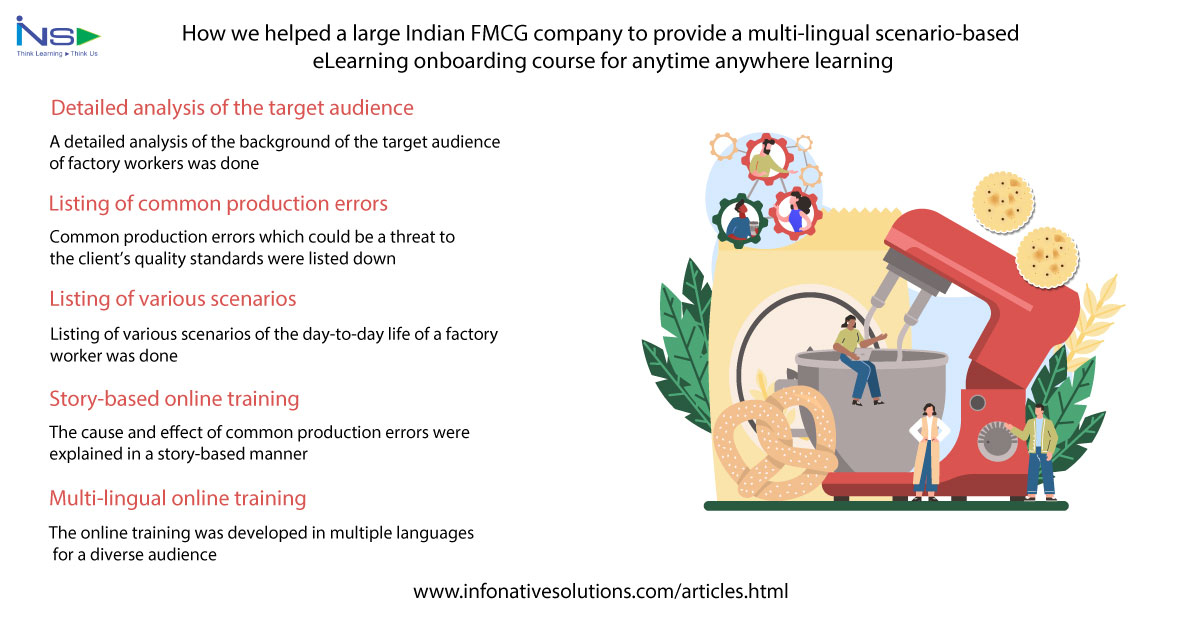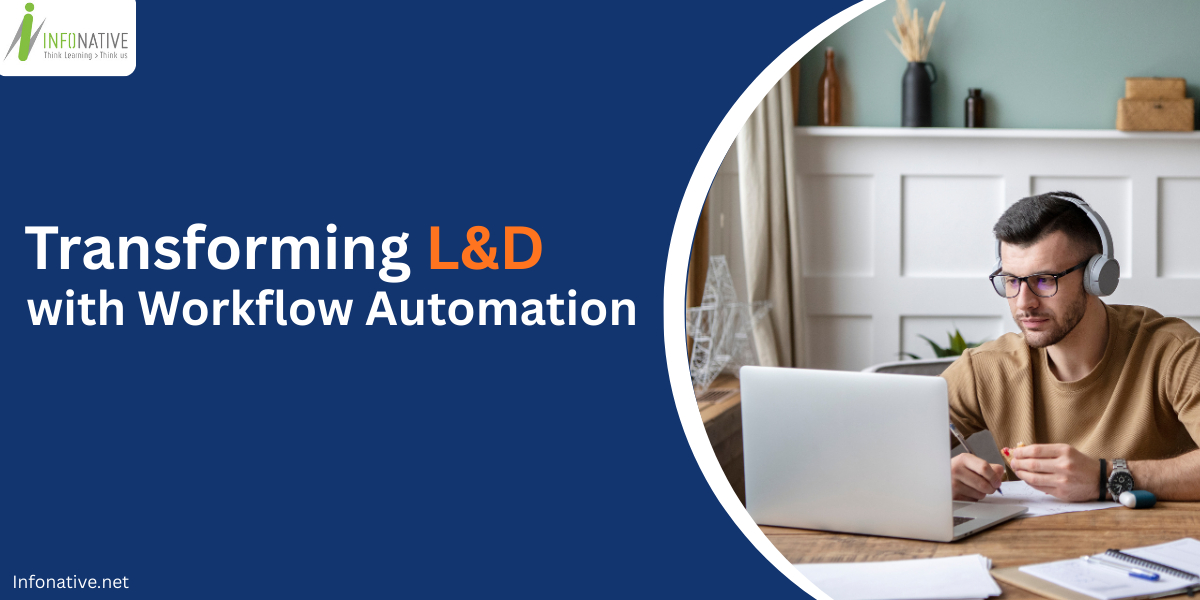Have you ever wondered how eLearning keeps evolving? In today’s fast-paced digital landscape, eLearning isn’t just an alternative to traditional learning—it’s becoming the primary method for education and corporate training. As demand for tailored content rises, custom eLearning development has taken center stage. And guess what’s propelling it to the next level? Artificial Intelligence (AI). Let’s dive into how AI is revolutionizing content creation in this domain.
What Is Custom eLearning Development?
Custom eLearning development involves designing training materials tailored specifically to meet the unique needs of an organization or learner group. Unlike generic courses, custom solutions focus on specific learning objectives, branding, and interactivity, ensuring maximum engagement and effectiveness.
Key Differences Between Generic and Custom eLearning
Generic eLearning provides a one-size-fits-all approach, whereas custom eLearning is bespoke, catering directly to an organization’s goals and learners’ needs. Think of it as ordering a made-to-measure suit versus buying off the rack.
Why Organizations Prefer Custom Solutions
With higher retention rates and better ROI, it’s no surprise that companies are moving towards tailored eLearning. Customization ensures learners get precisely what they need, increasing productivity and job satisfaction.
The Basics of AI in eLearning
AI in education isn’t new, but its application in eLearning has been groundbreaking. From adaptive learning algorithms to automated assessments, AI tools are reshaping how we design and deliver content.
AI Tools and Technologies Impacting eLearning
Popular AI-driven platforms use machine learning, natural language processing, and predictive analytics to create intuitive learning paths and real-time feedback loops.
How AI Transforms Content Creation
AI doesn’t just make eLearning faster; it makes it smarter. From creating personalized modules to gamifying content, AI is the secret sauce behind modern eLearning.
Automated Content Generation
Ever heard of AI writing tools like GPT? These platforms can churn out high-quality text, video scripts, and even quizzes, saving instructional designers countless hours.
Personalization in eLearning
AI uses data to adapt courses in real-time, ensuring each learner gets a unique experience. Imagine having a tutor who knows your strengths and weaknesses better than you do!
Gamification and AI
AI breathes life into gamification. By analyzing user data, it can create simulations and scenarios that feel immersive and impactful, keeping learners hooked.
Benefits of AI in Custom eLearning Development
The advantages of integrating AI are massive:
● Efficiency: Faster course creation means reduced time-to-market.
● Engagement: Interactive, personalized content captivates learners.
● Cost Savings: Automating tasks reduces labor costs without compromising quality.
Challenges of Using AI in eLearning
Of course, AI isn’t without challenges. Ethical concerns, data privacy, and the risk of bias are significant hurdles. Plus, there’s the need for human oversight to ensure AI doesn’t stray from learning objectives.
AI Tools Revolutionizing eLearning Content Creation
Some top AI platforms include:
● Articulate Rise: For designing responsive courses.
● Synthesia: For AI-driven video content.
● AdaptiveU: For personalized learning paths.
The Future of AI in Custom eLearning
AI’s potential in eLearning is just beginning. Expect more advanced tools, immersive VR/AR integrations, and even AI tutors that feel human-like.
Steps to Integrate AI in Custom eLearning Development
Assessing Organizational Needs
Start with a clear understanding of your goals. Who are your learners? What do they need? AI works best when aligned with specific objectives.
Choosing AI Tools
Compare platforms based on features, scalability, and ease of use. Always test before committing.
Implementing AI in eLearning
Train your team, monitor performance, and continuously optimize to get the most out of AI-driven solutions.
Conclusion
AI is revolutionizing custom eLearning development, making content creation faster, smarter, and more engaging. While challenges exist, the benefits far outweigh the cons, paving the way for a future where learning is more accessible and effective than ever before.




